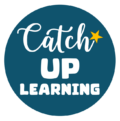The Impact of Illiteracy
Some facts about illiteracy today
Statistics from 2014 show that one in five children in England cannot read well by the age of 11. Further research, conducted in 2015, found that similar percentages of 15-year-olds across the UK do not have a minimum level of literacy proficiency: 18% in England and Scotland, 15% in Northern Ireland and 21% in Wales. The Reading Agency
Sixty-four percent of all eighth-grade students are unable to read proficiently, according to the National Assessment of Education Progress’ latest report. Eighty-two percent of black students and 77 percent of Hispanic students are not reading proficiently.
More than 30 million Americans cannot read or write above a third-grade level. Fox News
In April 2017, British MP Nick Gibb visited a series of Australian primary schools and found that a worrying amount of children were struggling with reading. He called on the schools to use phonics as the main method of instruction, rather than using it as just one part of the teaching strategy, as is currently the case. David Morgan Education, Australia.
Never, has there been a worse time to be unable to read. Years ago people could hide their illiteracy. They could ‘forget their glasses’ when asked to fill in forms that they couldn’t read. They could avoid anything that involved writing or reading in front of others. But they would struggle on, often unnoticed and manage to get by somehow.
Nowadays, without a basic level of reading, you can’t even send a text message. You can’t access the internet so you can’t carry out assignments or homework set from school or college. You can’t read instructions on ANYTHING, including how to heat up a microwave meal. You can’t order an UBER, you can’t read signs at railway stations, bus stations or on motorways. You can’t fill in on-line forms and questionnaires. You can’t apply online for jobs or deal with housing applications. The consequences impact on every area of life including job prospects, earning ability, self-esteem and quality of life. All of this then impacts on subsequent generations and ultimately society in general.
At a time when there has never been more information at our fingertips, a large part of society is totally excluded, putting them at an even deeper disadvantage.
Caroline Henderson holds a First Class Honours Degree in Teaching and Learning from Edgehill University in Liverpool, England (which is the highest honours degree you can achieve). She has worked extensively and passionately with struggling readers and math-haters for years and has been working as a private tutor for the past six years. .

